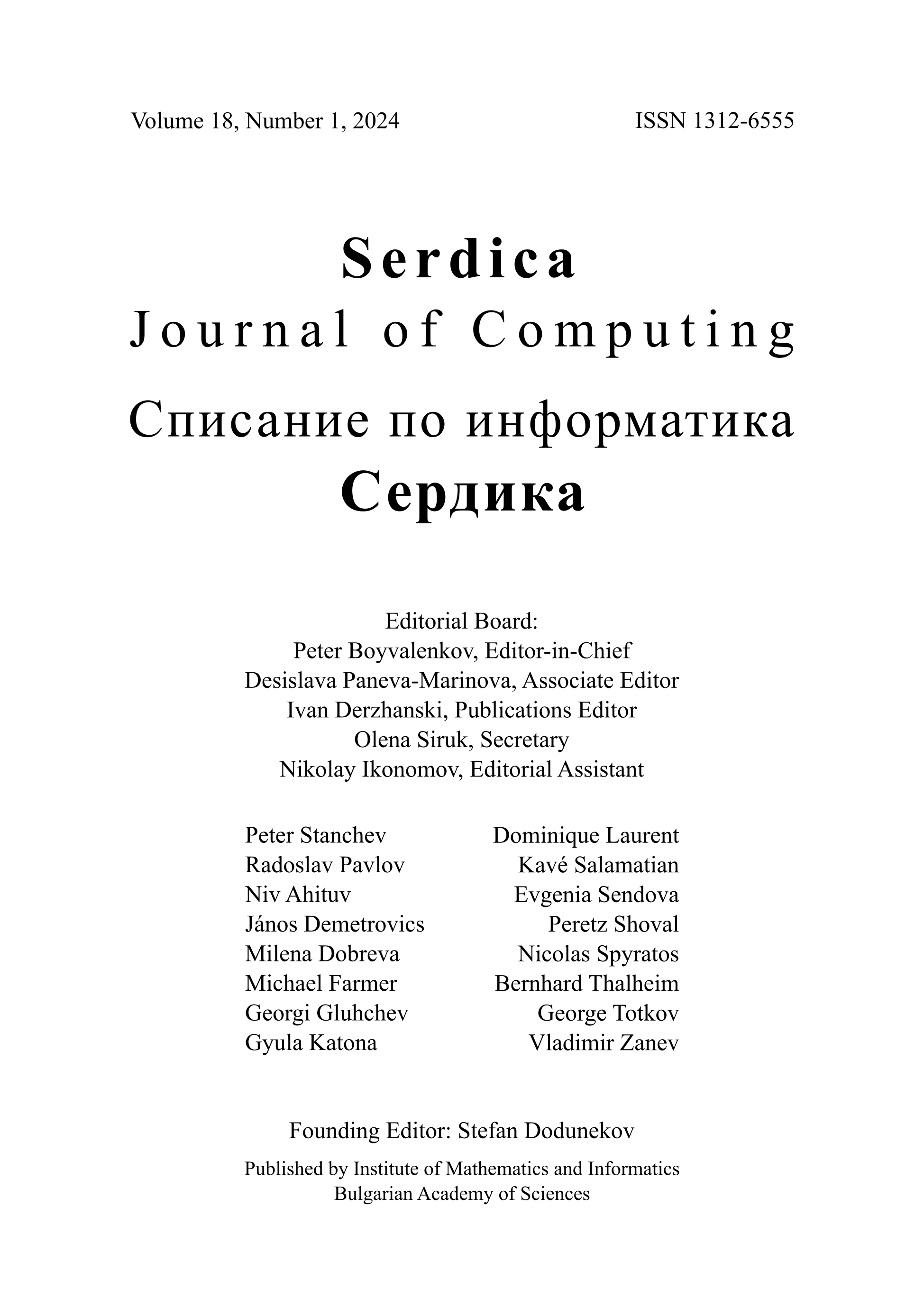A Semantic-Oriented Architecture of a Functional Module for Personalized and Adaptive Access to the Knowledge in a Multimedia Digital Library
DOI:
https://doi.org/10.55630/sjc.2008.2.403-424Keywords:
Personalization, Adaptive Access, Service-Based Architecture, Multimedia Digital LibrariesAbstract
This paper presents dissertation work on semantic-oriented architectures and models for personalized and adaptive access to the knowledge in a multimedia digital library. The work was presented on October 27, 2008 before the Specialized Academic Council in Informatics and Mathematical Modelling at the Higher Attestation Commission. As a result of the work there appeared a functional module providing customized user access to the library content flow. The module used an IEEE PAPI and IMS LIP-oriented ontological user model. The main services provide customized user access, browsing, searching, and grouping of digitised objects and collections, user profile management, tracking the user’s behaviour, etc. The services require and trace out data about the preliminary level of the users’ knowledge in the domain covered by the digital library, their object observation style, cognitive goals and interests, preferences about the objects/collections presentation and grouping, physical limitations, used knowledge delivery channels (Web, mobile phone), etc. Then they transform the available digitised objects into a new personalized form, and finally deliver them to the user. The module uses special usage scenarios/instructions defining a wide range of service actions dependent on the user’s background, events, informal learning situations, knowledge delivery channels, etc.

